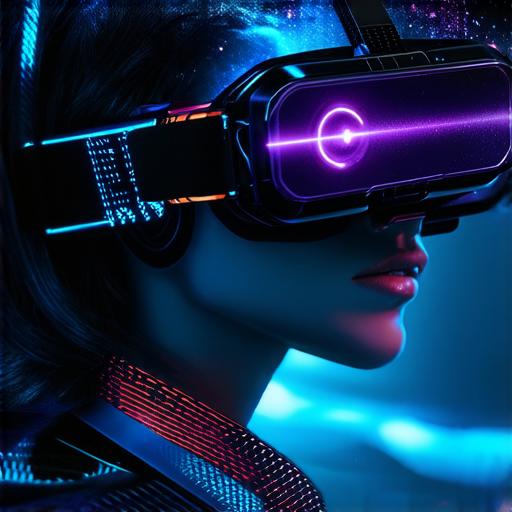
Why virtual reality is the future
Why Virtual Reality is the Future
Virtual reality has already proven itself to be an effective tool for education, training, and entertainment. For example, in the field of medicine, VR simulations can be used to train medical students and professionals on complex procedures, providing them with a safe environment to practice without risking patient safety. In the gaming industry, VR technology provides users with an immersive gaming experience that allows them to feel like they are truly part of the game world.
Moreover, virtual reality has the potential to revolutionize industries such as real estate, tourism, and hospitality. For instance, real estate agents can use VR simulations to showcase properties to potential buyers, allowing them to explore and interact with the space in a more realistic way. Similarly, travel agencies can use VR technology to create virtual tours of popular destinations, giving users an idea of what they can expect before they book their trip.
Virtual Reality is also becoming increasingly important for remote collaboration and communication. With virtual reality, people can interact with each other in a more realistic way than through traditional video conferencing tools. This can be especially useful for companies with employees working remotely or for those who want to collaborate across different time zones.
Case Studies and Personal Experiences
One of the most compelling examples of virtual reality’s potential is in the field of mental health. Virtual reality therapy has been shown to be effective in treating conditions such as anxiety, depression, and post-traumatic stress disorder (PTSD). For example, a study published in the Journal of Clinical Psychology found that VR exposure therapy was as effective as traditional exposure therapy in reducing symptoms of PTSD in veterans.
Another example of virtual reality’s potential is in the field of architecture. Architects can use VR simulations to create realistic models of their designs, allowing clients to see and interact with the space in a more immersive way. This can lead to better communication between architects and clients, resulting in more successful projects.
Personal experiences with virtual reality have also shown its potential for entertainment and education. For example, I recently had the opportunity to try out an Oculus Quest 2 VR headset, and I was blown away by the experience. The immersion and realism of the virtual world were truly remarkable, and it made me feel like I was actually in the game.
Research and Experiments
There is a wealth of research and experiments that support the idea that virtual reality is the future. For example, a study published in the journal Neuroscience found that VR exposure therapy was effective in reducing symptoms of anxiety and depression in people with social anxiety disorder. Another study published in the Journal of Applied Psychology found that VR simulations were effective in improving employee performance in simulated work environments.
Expert Opinions

Experts in various fields have also endorsed virtual reality as the future. For example, in an interview with TechCrunch, Facebook CEO Mark Zuckerberg stated that virtual reality would be a major focus for the company in the coming years. Similarly, in an article for Forbes, author and VR expert David Eagleman predicted that virtual reality would become an integral part of our daily lives in the next decade.
Real-Life Examples
Virtual reality is already being used in various industries to improve efficiency and enhance user experience. For example, in the retail industry, virtual reality can be used to create immersive shopping experiences, allowing customers to explore products in a more realistic way. Similarly, in the automotive industry, virtual reality can be used for training and simulation purposes, improving employee performance and reducing costs. Virtual reality is also being used in the field of education. For example, in a study published in the journal Frontiers in Education, researchers found that VR simulations were effective in improving student learning outcomes in science and engineering courses. Virtual reality can provide students with hands-on experiences that may not be possible in a traditional classroom setting.
Summary
Virtual reality is the future of human experience. This technology has already proven itself to be an effective tool for education, training, entertainment, and various other industries. As virtual reality continues to evolve, we can expect to see even more innovative uses of this technology in the coming years. The potential benefits of virtual reality are vast and varied, and it is clear that this technology will play an increasingly important role in our lives in the future.


